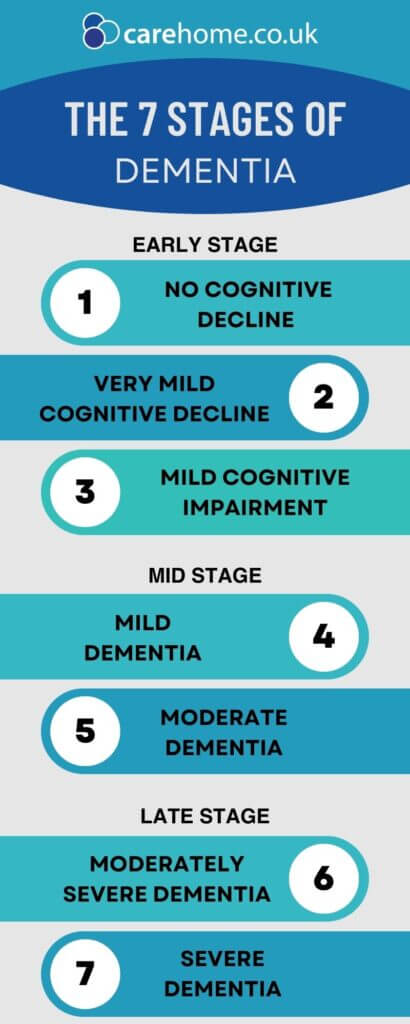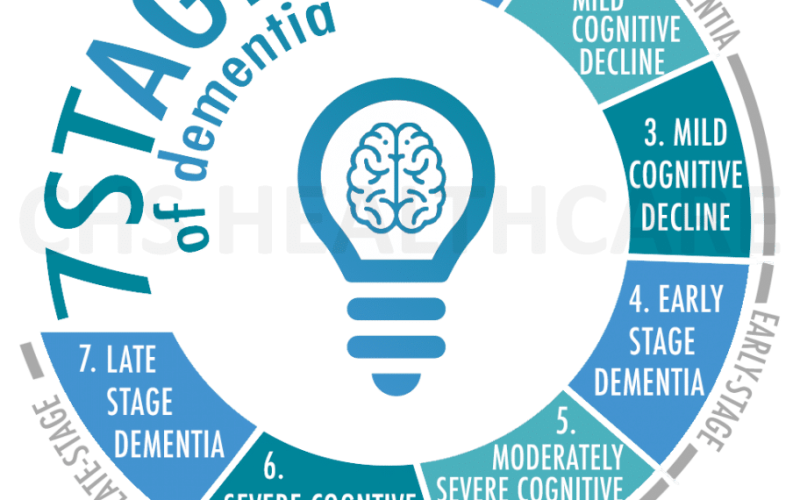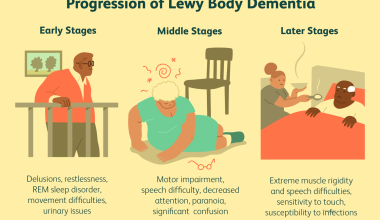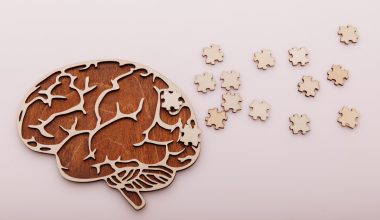As an Amazon Associate, I earn from qualifying purchases
Stages of Dementia in the UK progress from mild cognitive impairment to advanced decline in cognition, function, and behavior. In the beginning stages, individuals may experience memory lapses and find it harder to complete everyday tasks.
As the disease advances, symptoms worsen, leading to increased confusion, difficulty with speech and motor skills, and changes in personality and behavior. Ultimately, individuals may become dependent on others for basic care and lose their ability to communicate or recognize loved ones.
It is crucial to understand the stages of dementia to provide appropriate support and care to individuals and their families.

Credit: www.carehome.co.uk
Early Stage
The early stage of dementia is often characterized by mild symptoms that may not be immediately apparent. It is crucial to recognize the signs early, as this can lead to timely intervention and better management of the condition.
Symptoms
In the early stages of dementia, individuals may experience subtle changes in their memory, cognition, and behavior. Forgetfulness, difficulty finding the right words, confusion about time and place, and mood swings may be some of the initial red flags. Moreover, individuals may demonstrate repetitive behaviors and struggle with completing familiar tasks.
Impact On Daily Life
These early symptoms can significantly impact the individual’s daily life. Memory lapses may result in challenges with planning and organization. They may struggle with managing finances, completing household chores, or following recipes. Communication difficulties due to word-finding problems can also lead to frustration in social interactions.
Middle Stage
The middle stage of dementia is a challenging phase that often requires increased support and understanding. During this stage, individuals begin to experience more pronounced symptoms, impacting their daily functioning and placing a significant burden on their caregivers. In this section, we will explore the symptoms commonly observed during the middle stage of dementia and shed light on the challenges faced by caregivers.
Symptoms
As dementia progresses to the middle stage, individuals may exhibit a variety of symptoms that affect their cognitive abilities and behavior. These symptoms include:
- Increased memory loss and confusion
- Difficulty recognizing familiar faces or places
- Trouble communicating thoughts and needs effectively
- Problems with reasoning and judgment
- Changes in personality and behavior
- Agitation, aggression or restlessness
- Sleep disturbances
- Wandering or getting lost
- Incontinence
These symptoms can vary in intensity and may disrupt the person’s ability to perform everyday tasks and maintain relationships. Understanding and managing these symptoms is crucial for providing appropriate care.
Challenges Faced By Caregivers
In the middle stage of dementia, caregivers face numerous challenges as they strive to meet the needs of their loved ones. Some of the main challenges include:
- Increased care demands: As dementia symptoms worsen, individuals often require more assistance with daily activities such as dressing, bathing, and eating.
- Communication difficulties: People in the middle stage of dementia may struggle to express themselves, leading to frustration and difficulty understanding their needs.
- Behavioral changes: The shifts in personality and behavior can be distressing for both the individuals with dementia and their caregivers, challenging their patience and emotional well-being.
- Wandering and safety concerns: Those in the middle stage of dementia may experience wandering tendencies, putting themselves at risk of accidents or getting lost.
- Financial and logistical challenges: Managing medical appointments, coordinating care services, and dealing with legal and financial matters can become overwhelming for caregivers.
These challenges can sometimes lead to caregiver burnout, stress, and feelings of isolation. It is crucial for caregivers to seek support and resources to navigate this demanding stage of dementia.
Late Stage
In the late stage of dementia in the UK, individuals experience severe cognitive decline, with a notable loss of communication skills and motor functions. Daily living activities become increasingly challenging, and round-the-clock care is often required to ensure their safety and well-being.
Symptoms
In the late stage of dementia, the symptoms become more severe and intense, making it even more challenging for both the individuals affected and their caregivers. This stage is characterized by a significant decline in cognitive function and a noticeable deterioration in physical abilities.
Some common symptoms experienced during the late stage of dementia include:
- Severe memory loss, forgetting the names of loved ones and being unaware of their surroundings.
- Difficulty communicating or understanding spoken language.
- Loss of mobility and muscle control.
- Incontinence, requiring assistance with personal hygiene.
- Behavioral changes, including aggression, agitation, and wandering.
- Increased vulnerability to infections such as pneumonia.
It’s important to note that the progression of symptoms can vary from person to person, and not everyone will experience all of these symptoms. The late stage of dementia can be emotionally challenging for both the individuals living with the condition and their loved ones.
End-of-life Care
As dementia reaches its late stage, individuals require specialized care to ensure their comfort and well-being. End-of-life care becomes crucial during this stage, aiming to provide the highest quality of life possible.
Here are some key considerations for end-of-life care for individuals with late-stage dementia:
- Evaluating and managing pain and discomfort to enhance comfort levels.
- Implementing strategies to prevent complications such as pressure sores or infections.
- Assisting with personal care, including feeding, bathing, and dressing.
- Creating a calm and soothing environment to minimize agitation and promote relaxation.
- Ensuring proper nutrition and hydration to maintain overall health and well-being.
- Providing emotional support and companionship to enhance the individual’s sense of security and comfort.
It’s important for caregivers to seek assistance from healthcare professionals and support networks to help navigate the challenges associated with end-of-life care for individuals with late-stage dementia. By understanding the unique needs of those in the late stage of dementia, caregivers can provide the best possible care and support during this difficult time.
Credit: www.alzheimers.org.uk
Support And Resources
When dealing with the stages of dementia in the UK, it is essential to have access to proper support and resources. Knowing where to find help and information can make a significant difference in managing the challenges associated with dementia.
Medical Options
Finding the right medical options for dementia care is crucial. This could include medication to alleviate symptoms and slow down the progression of the disease. Consultation with a medical professional can help determine the best approach for addressing the specific needs of an individual with dementia.
Coping Strategies
Developing effective coping strategies can help individuals with dementia and their caregivers manage the daily challenges. These strategies may include implementing a routine, engaging in stimulating activities, and learning how to communicate effectively with someone experiencing cognitive decline.
Support Groups
Connecting with support groups can be incredibly beneficial for both individuals with dementia and their caregivers. Being part of a community where everyone understands the difficulties and can offer advice and support can make a world of difference. It’s important to find local support groups or online communities for a convenient way to connect with others facing similar situations.

Credit: sweetpea.care
Frequently Asked Questions On Stages Of Dementia Uk
How Can You Tell What Stage Of Dementia A Person Is In?
To determine the stage of dementia, professionals assess cognitive abilities, memory, behavior, and daily functioning. They use standardized tests, medical history, and observation of symptoms over time. Expert evaluation is crucial for accurate diagnosis and treatment planning.
How Long Do The 7 Stages Of Dementia Last?
The duration of the 7 stages of dementia can vary. Generally, the later stages can last from a few months to several years, depending on the individual’s health and other factors. It’s essential to work with healthcare professionals to understand the specifics for a loved one.
What Are Signs That Dementia Is Getting Worse?
Signs of worsening dementia include increased forgetfulness, difficulty with daily tasks, confusion, personality changes, trouble communicating, and declining judgment and decision-making abilities. If these symptoms are evident, it’s important to seek medical advice for proper management and support.
What Is The Average Age Of Death For Someone With Dementia?
Most individuals with dementia have an average life expectancy ranging from 3 to 11 years after diagnosis, depending on the type and progression of the disease.
Conclusion
In understanding the stages of dementia in the UK, it’s essential to recognize the progression of symptoms and the impact on individuals and their families. By raising awareness and providing support and care, the healthcare system and the community can work together to improve the lives of those affected by dementia.
Our efforts can make a meaningful difference in the lives of those living with this condition.
As an Amazon Associate, I earn from qualifying purchases






